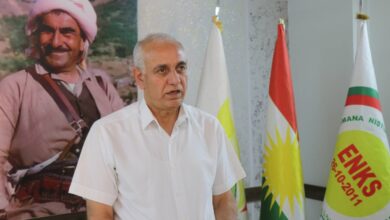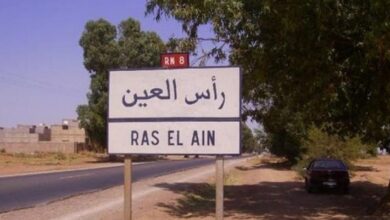EU: Abuses Against Children Fuel Migration
(Brussels) – Large numbers of children from war-torn countries, often traveling alone, are fleeing abuses in their home countries to seek safety in the European Union, Human Rights Watch said today. Many are fleeing recruitment as soldiers, child marriage, and attacks on schools, or escaping other effects of war in Syria and Afghanistan or discrimination against Afghan refugees in Iran.
A Syrian woman embraces her daughter on the dock side after being escorted into the harbor by the Greek Coastguard who found them drifting offshore on June 4, 2015 in Kos, Greece.
In 2014, over 6,100 asylum-seeking or migrant children were recorded as reachingGreece, the vast majority by sea, according to figures provided to the United Nations High Commissioner for Refugees (UNHCR) by the Greek police and coast guard. Of these, about 1,100 were registered as unaccompanied or traveling without family members. Actual numbers are almost certainly higher, as many children traveling alone claim to be 18 or over to avoid prolonged detention while authorities find space in shelters for unaccompanied children.
“Thousands of children risk perilous journeys on their own because they believe they have no choice,” said Jo Becker, children’s rights advocacy director at Human Rights Watch. “The least that neighboring countries and the EU should do is to make sure they aren’t abused or denied their rights when they arrive.”
In May 2015, Human Rights Watch interviewed over 100 newly arrived asylum seekers and migrants, on the Greek islands of Lesbos, Chios, Samos, Leros, and Kos. All had arrived by boat from Turkey within the previous month. Most of the 41 children interviewed were from Syria and Afghanistan. Twenty-four of them, overwhelmingly boys between 15 and 17, were traveling without family members.
Children undertake perilous journeys to reach Greece. Some Afghans described walking 12 to 14 hours through the mountains in waist-deep snow to cross the Iran-Turkey border, and being fired upon by Iranian border police. Many said the most difficult part of their journey was crossing the Aegean Sea in overcrowded inflatable boats, arranged by smugglers who charged US$800 to $2,000 per person.
Upon arrival in Greece, unaccompanied children may be detained much longer than adults while authorities search for space in children’s shelters across Greece. Although shelters are meant to protect children, many children perceive the prolonged detention as punitive. As a result, many claim to be 18 or 19 so that they can be released to continue their journey to Athens and other countries of the EU.
The Committee on the Rights of the Child has found that detention of children based on their migration status is always a violation of child rights and has called on countries to “expeditiously and completely cease” detaining children on the basis of their immigration status.
Greece should ensure adequate reception conditions on the islands, with special attention to the needs and best interests of children, including those traveling alone. Greek authorities should expedite processing of families with children and unaccompanied children, and avoid detaining children, in line with recommendations from the Committee on the Rights of the Child.
The Greek government should ensure sufficient capacity in shelters for unaccompanied migrant and asylum-seeking children to minimize as much as possible detention pending transfer to shelters. The EU should provide financial assistance to the Greek government to achieve these goals.
EU countries should support proposals to help alleviate the burden on Greece by relocating people in need of international protection, and ensure that such a program takes into account the best interests of children traveling with their families and unaccompanied children. Measures to increase safe and legal channels into the EU should include attention to the particular needs of asylum-seeking and migrant children.
The governments of Syria and Afghanistan should protect children from violations in armed conflict, and from other abuses such as child marriage. Iran should ensure Afghan children’s right to education, and take measures to end exploitative child labor and police violence. Donors should support stronger child protection systems in countries of origin for asylum-seeking and migrant children and in countries hosting refugee populations.
“Children forced to flee abuse or life-threatening danger and who encounter even more danger along the way shouldn’t find more abuse and neglect when they arrive,” Becker said. “Their own countries, the countries where they land, and other countries should be doing a lot more to protect and help them.”
Denial of Education
Mohammad left Deir ez-Zor in Syria in May 2015 with his wife and two sons, ages 3 and 10. He described an attack on his son’s school in 2012 in which 22 people died, mostly children. He believed that the Syrian government targeted schools for attack:
Assad sends airplanes to attack, and chooses specific places to attack like schools and mosques, because there are a lot of people there. All the people [whose homes have been attacked] go to the school, because it should be a safe place. But he does the opposite and attacks it.
His 10-year-old son, Hussein, said that when his school was demolished, “I felt that my future was destroyed.”
Adnan, 16, from Damascus, said:
I cannot live in Syria. I cannot continue my studies. We can’t walk safely on the street. We can’t guarantee our lives. They attack the schools, they attack the mosques. My school was bombed. A plane attacked it at night. One month later, we moved to Quneitra. A year after we arrived, that school was destroyed too.
Firas, 16, from Aleppo, who was traveling with his older brother and sister, said that his parents were killed in 2012 when their house was bombed. He said that he went to school for eight years, but stopped because authorities closed the school. “In Aleppo, some schools are destroyed and others shut down because they can’t guarantee our safety,” he said.
Tarek, a 16-year-old Afghan from Helmand Province, where there was a heavy foreign military presence until 2014, said:
There are schools, but not so many students because people are afraid to send their children because of the Taliban. One school is only open one day a week. Children do not go. The Taliban doesn’t allow children to go to school. If families let children go, the Taliban will kill them because in the future they may work for foreigners.
Afghan refugees in Iran have to pay school fees and show residency documents to be admitted to school. Ali, 16, whose family went to Iran when he was very young, said he went to school through eighth grade, but steep fees put further education out of reach: “Just the Afghans had to pay, not Iranians,” he said. He said he would have stayed in Iran if he could have continued his education.
Ahmad, a 16-year-old Afghan who was raised in Iran, said:
I went to school, but my parents had to pay for me and my brother and sister because we were not Iranian. Iranian children do not have to pay. Two or three times I did well enough in exams to qualify for a special education program, but could not go, because I was Afghan. Refugees are also not allowed to study in university in Iran, so I decided for my future to go somewhere else. I didn’t want to go back to Afghanistan. Every day we heard about suicide bombings and someone or some group of people losing their life, even in Kabul. Every day there is a bomb blast. If I went back there, I imagine a dark future. I just want to have a chance to continue my education, nothing more.
An Afghan woman in her twenties fled to Iran with her husband because of the war. They had no residency papers and, when their son reached school age, they were unable to enroll him in Iranian government schools. They decided to return to Afghanistan, but found the situation had not improved: “We saw that there were suicide bombings every day. I didn’t have the courage to send the children to school and had to keep them in the house. That’s the reason we left again. Mostly because of my children.”
Military Recruitment
In Afghanistan, the Taliban and other armed groups recruit children as young as 8 to serve as combatants and suicide bombers, and to manufacture and plant explosive devices. Some children or parents said possible recruitment by the Taliban was a reason they left Afghanistan.
Akbar, a 17-year-old Afghan interviewed on Lesbos said, “I fled the Taliban, because many children who are my age are taken by the Taliban to use as suicide bombers.”
Mubarak, an Afghan with three sons, ages 5, 9, and 12, who left Parwan in Afghanistan in March, was interviewed in the detention center on Lesbos:
Every day the Taliban would take people…. For me, I was worried about my children, my sons, and that they would be forced to become suicide bombers.… I left Afghanistan because of my children and my family.
In Syria, men must complete mandatory military service for 18 months, beginning at age 18 and, since the war began, the government has increasingly recalled those who have finished their military service. Syrians who refused to serve said that if they were apprehended, they could be sent to the front lines, or imprisoned and tortured. Hani, 17, from Idlib, said that the prospect of military service was the reason he left:
I don’t want to carry a weapon. I’ve never held a weapon and I won’t do it. Not for the government, not for an armed group…. I saw what was happening and I saw it would happen to me and decided to leave. [If they take you,] maybe you’ll stay till death or until the war is finished.
Although government forces generally do not recruit children under 18, many armed groups do. Firas, 16, from Aleppo, said that if he had stayed in Syria, “Maybe they would take me to the army, maybe I would be dead, or maybe armed groups would take me to fight with them and hold a weapon.”
Child Labor
Many Afghans who have fled their country seek refuge in Iran, which hosts an estimated three million Afghans. One million are recognized refugees. The rest are treated as migrant workers who hold temporary visas or are completely undocumented. Children who hope to continue their studies often find the fees for education and residency permits prohibitively high, and end up in exploitative child labor instead, working long hours for little pay on construction sites or in agriculture or garment factories.
Nasr, 16, began working on a construction site in Iran when he was 14, building walls with stone and cement. He worked 12 hours a day, seven days a week. He said, “If you took a day off, you would lose all your money.” His salary was not enough to support him and allow him to renew his residency permit. “In the end, I had no money,” he said.
Bakir, 16, began working in a garment factory in Tehran at 14 with seven other Afghans. For his first year, he worked without a salary, from 8 a.m. to midnight every day, and during busy periods, even longer. The owner of the company told him, “If you won’t work like this, you won’t get paid.”
Walid started working in Iran at age 9, when his aunt stopped paying his school fees. He said he worked to enable his brother to stay in school. He first worked in a small garment shop, from 7 a.m. to 7 p.m., with only one day off each month. Later, he worked in a restaurant, but found that his paltry wages were not enough to support him and his brother. “It wasn’t a life,” he said. “I was just alive.” He left Iran for Greece in May.
Other children tried to work in Turkey. Sayid, 18, fled violence in Aleppo at 16 and found a job in a Turkish factory. “It was long hours and little money,” he said. “I worked from 8 in the morning to 7:30 at night. Sometimes they made us work until 11 p.m. We had no choice.”
Firas, a 16-year-old from Aleppo, left Syria in early 2015 after authorities closed his school. He initially went to Turkey where he worked 12 hours a day in a garment factory: “I tried to save money, but other times I had to eat. I left Turkey a month ago. I couldn’t handle much more work.”
Police Abuse in Iran
Afghan children in Iran also experienced arbitrary arrest, extortion, and forced labor by the Iranian police, under the constant threat of deportation. Several said they lived at their work sites to avoid encounters with the police.
Bakir, 16, left Afghanistan at 14 because he was not able to continue his education. In Iran, he found a job but had no documents: “Two or three times, the police captured me, and I had to give them all my money to get them to release me. It was very difficult, so I left.”
Ali, 16, said the police in Tehran had arrested him more than 20 times: “In Iran, the police hate us. They arrest us and take our money. Once, it happened twice in one week. They take everything.”
Several boys said they had been picked up by police and forced to clean police stations. Zaher said he was picked up on his way to a store. He showed the police his resident permit, but they took him to the police station, where they forced him to work until late at night, washing dishes and cleaning the station.
Another 16-year-old Afghan boy reported that on four occasions, the police had forced him to spend a full day cleaning a police station. Akram said the police had picked him up more than 10 times and forced him to clean the station five or six times: “They have no regular cleaner, they just use Afghan refugees.”
Child Marriage
An Afghan couple from Herat told Human Rights Watch that they fled Afghanistan to avoid child marriage. A 65-year-old man connected to the Taliban had proposed to marry their 10-year-old daughter. “If we didn’t accept, they would kill us,” said the mother. “He was connected to powerful people. I accepted the proposal because I had no choice, but I had a plan and we escaped in the night.”
Prolonged Detention of Unaccompanied Children in Greece
Treatment of children varies from one Greek island to another. Unaccompanied children who arrive on Lesbos, Chios, or Samos are generally detained until a shelter is found for them or a court determines that they can be released to the custody of a relative. People who arrive on Leros, including unaccompanied children, are often released within a day or two. Local volunteers help coordinate housing, food, clothing, and medical care.
On Kos, one of the larger islands, processing can take three weeks or more. Few services are offered, and children and adults alike sleep outdoors in an abandoned hotel with makeshift beds, without electricity and limited running water, or in tents provided by Doctors without Borders. Many said that authorities provided little food and some said they had not eaten for days.
Asylum-seeking and migrant children who are registered as unaccompanied in Greece are often detained much longer than adults or children traveling with their families, while authorities search for shelter facilities for them. Although placement in shelters is designed as a protection measure, many children view the prolonged detention as punitive. While adults may be released in just a few days, children may be held for three weeks or more.
Lesbos, Chios, and Samos have locked detention centers surrounded with razor wire, where children are frequently held with adults in spaces that are often overcrowded and dirty. On Samos, detainees said they only had access to water for 30 minutes a day; and on Chios, Human Rights Watch found adults and children taking shelter from the sun under makeshift shelters made from clothing and blankets.
Akbar, a 17-year-old Afghan, had been detained on Lesbos for 10 days and was distraught that his three traveling companions, who each gave their age as 18 or older, had already been released and gone to Athens. “If they leave Athens,” he said, “I will be alone here. I don’t know anybody.”
Asif, another 17-year old Afghan detained on Lesbos, said he had been told he would stay in the detention center for three weeks. “It feels like I’m in jail,” he said. Unaccompanied children in the center were not segregated from adults. “Last night, people entered my room and took everything,” he said. “They say children should be protected, but it means nothing.”
Ismael, a 16-year-old Syrian who traveled alone from Aleppo, said he hoped to reach Europe to get medical treatment for his father, who was very ill. He also said that friends who said they were older had been released. “It was my mistake that I told them my age,” he said.
Leylo, a 16-year-old Somali girl who traveled for three months to reach Greece, had been in Chios’ overcrowded detention center for nearly two weeks. She said that other detainees controlled access to the toilets, so that there were times she was unable to relieve herself. “They keep treating us like kids and saying you will go tomorrow, you will go tomorrow, but I don’t see us going anywhere.”
Zahar, from Afghanistan, was interviewed just after his release from detention on Chios. He said he was 16, but had told the police that he was 19: “If I told them, they would keep me and I didn’t want to stay.” He said that many children who traveled alone knew about the prospect of prolonged detention and gave their age as 18 or 19.
www.hrw.org







